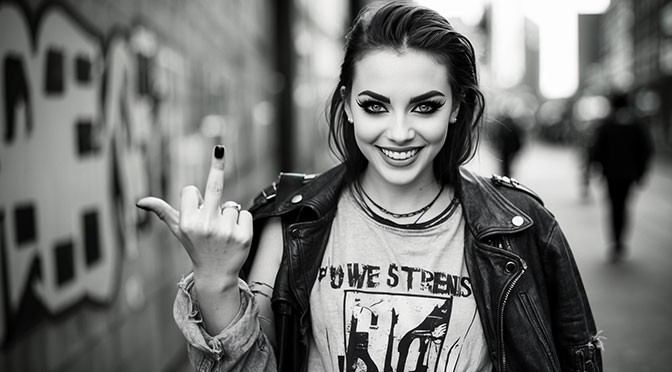At the heart of contemporary literature, a fascinating genre has emerged and gained increasing popularity: Weird Girl Fiction. As an author, you should be familiar with this genre as it offers exciting opportunities to portray modern female characters in authentic and multi-layered ways.
The Emergence of a Genre
Weird Girl Fiction emerged as a countermovement to the often overly idealized and perfected female characters in literature. The genre first established itself in English-language literature, gaining prominence through authors like Ottessa Moshfegh and Sally Rooney. The “weird girls” in these stories are deliberately different, nonconformist, and often intentionally difficult – and that’s precisely what makes them so interesting.
The protagonists of the genre are characterized by their authenticity. They’re not flawless heroines but complex characters with rough edges. They can be insufferable, make questionable decisions, and often have a complicated relationship with themselves and their environment. These characters deliberately break with societal expectations of female behavior.
Body Awareness in Weird Girl Fiction
A central element of the genre is the unique portrayal of body awareness. The protagonists often have a complex, sometimes even disturbed relationship with their bodies. Unlike in traditional literature, physical “flaws” and “imperfections” aren’t concealed or presented as obstacles to overcome. Instead, they’re integral parts of the characters’ identities.
The description of bodily functions occurs with unsparing directness. Menstruation, body odors, digestion – nothing is sugar-coated or omitted. This honesty in depicting physical realities is a hallmark of the genre and contributes to the authenticity of the characters.
Physicality and Intimacy
In Weird Girl Fiction, physicality isn’t idealized. Sex is often awkward, sometimes disturbing, sometimes unsatisfying. The protagonists frequently have an ambivalent relationship with their sexuality. They might be sexually active without finding it liberating, or long for intimacy while simultaneously recoiling from it.
This complex portrayal of physicality allows for exploring deeper truths about human relationships and self-perception. The “weird girls” struggle with societal expectations of female sexuality and often develop their own, unconventional ways of dealing with it.
Partnership and Relationships
Relationships in Weird Girl Fiction are rarely romantically transfigured. The protagonists often engage in complicated, sometimes toxic relationships. They can be obsessive, emotionally distant, or incapable of genuine closeness. Nevertheless – or perhaps because of this – these relationship portrayals are marked by a particular intensity.
The “weird girls” seek connection while simultaneously shrinking from it. Their relationships are characterized by ambivalence, by the desire for closeness alongside the fear of vulnerability. This complexity makes the relationship portrayals particularly authentic and relatable.
Significance for Contemporary Literature
Weird Girl Fiction has permanently changed the literary landscape. The genre has opened new possibilities for writing female characters who don’t have to conform to traditional expectations. It allows for a more honest, direct look at female experiences and physicality.
For you as authors, the genre offers exciting possibilities. You can create characters who don’t need to be perfect, who are allowed to make mistakes, and whose complexity is their strength. Weird Girl Fiction encourages the creation of authentic characters who are deeply human in their imperfection.
Writing Tips for the Genre
If you want to write in the realm of Weird Girl Fiction, authenticity is key. Don’t be afraid to let your characters be unsympathetic. Give them space for problematic thoughts and behaviors. Show their physical and emotional realities without embellishment.
Pay particular attention to your protagonists’ inner world. Weird Girl Fiction thrives on deep psychological penetration of the characters. Explore their thoughts, fears, and contradictions. Let them be complex and sometimes incomprehensible – just like real people.
Weird Girl Fiction is more than a literary trend. The genre has filled an important gap in the literary representation of female experiences. It offers the opportunity to create authentic, complex characters who don’t have to meet traditional expectations. As an author, you can use this freedom to tell stories that are honest, unvarnished, and therefore particularly powerful.

